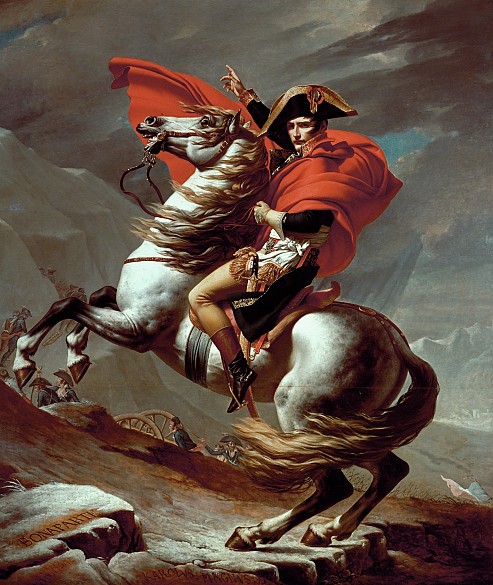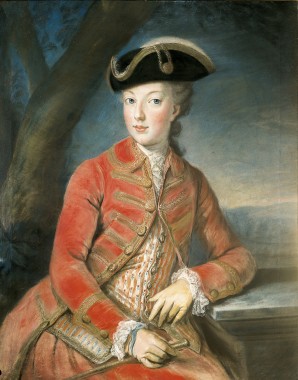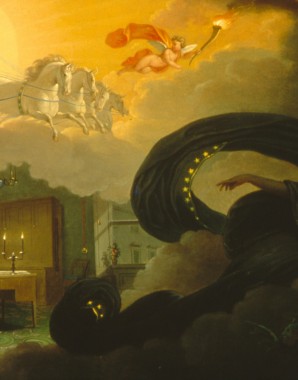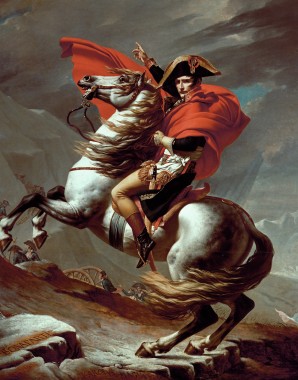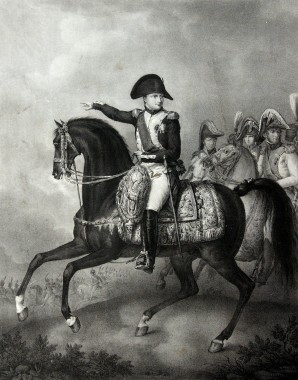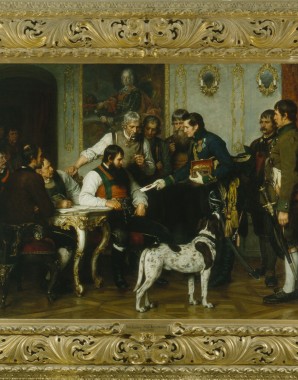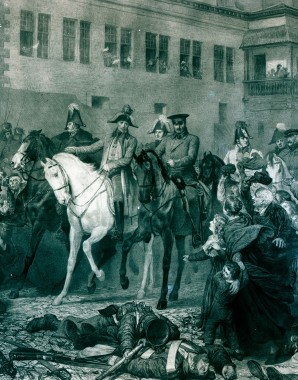Unification of Europe à la Napoléon
The two decades either side of 1800 saw a large part of Europe in a state of emergency. European politics were dominated by the figure of Napoleon Bonaparte, a man who was diminutive in stature but far from small in his deeds and influence. With hindsight we can now see that the end of the eighteenth century saw two major upheavals of decisive importance: the Industrial Revolution and the French Revolution. The courses taken by these economic and political transformations were often contradictory and neither simultaneous nor planned. As the third estate or tiers état, the middle classes played a considerable part in the innovations and are even generally credited with responsibility for having brought them about – however, certain members of the nobility were also open to the radical changes.
Invasions by the armies of the French Revolution before and after 1800 wrought havoc with European political geography. This period of turmoil also saw battles of new dimensions while the wars caused high casualties amongst both soldiers and civilians. Habsburgs took part in these wars against Napoleon both as rulers and as military commanders. After more than twenty years of war, the end result was a return to the old order.
